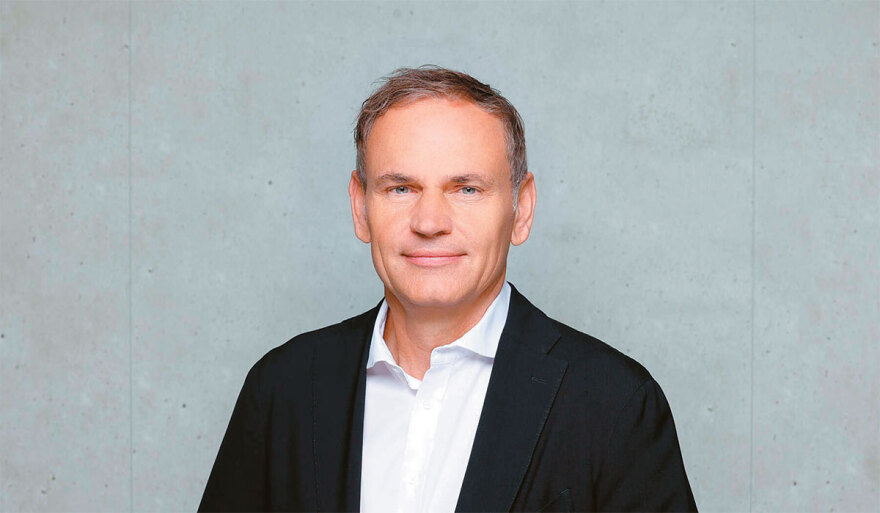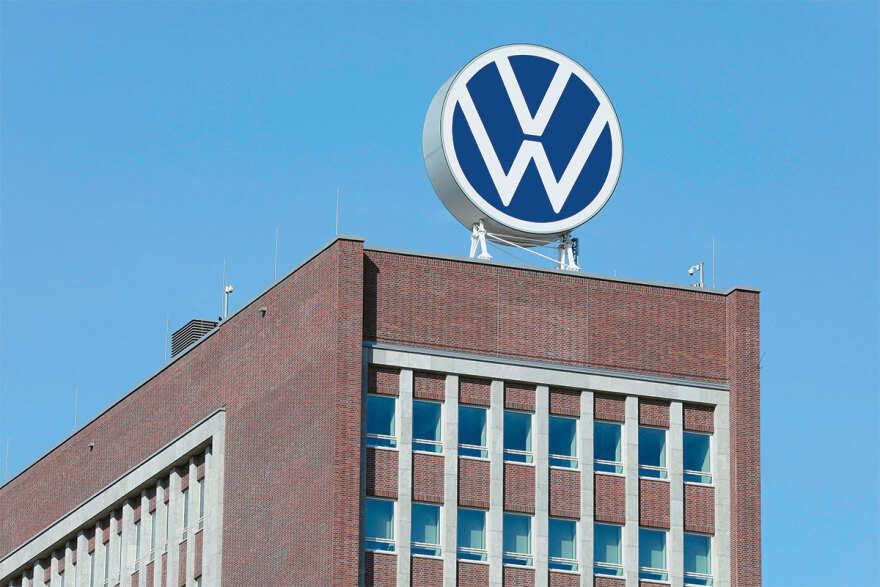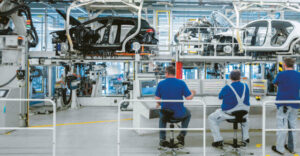Logically, the spectacular rise of the far right in Germany cannot be related to the failure of a company called Cariad to supply Volkswagen with the right software for the millions of vehicles it produces. Nor could the stagnation – if not recession – of the German economy in recent times be related to the horribly delayed launch, by a full 15 months and now postponed to 2029, of the ID.4, VW’s revamped all-electric SUV. And yet, a series of events like the previous ones are the individual pieces of the current German problem.
A deep and systemic problem that runs through all of public life in Germany, from the economy, employment and export trade to immigration policy. And the barometer of these negative developments for Germany is Volkswagen. If anything, because VW is the country’s largest employer and its turnover accounts for 5% of its total GDP.
If the interpretation that “what Nokia was to Finland and what Samsung was to South Korea is always VW to Germany”, i.e. an iconic “national” industry, is true, then Volkswagen Group’s top management must be having the same nightmares as the country’s chancellor Olaf Scholz lately. Neither of them wants to imagine what will happen if VW fails to put the brakes on its current slide and follows the fate of Nokia.
According to VW group chief financial officer Arno Adlich, “Our sales are 500,000 below what we need to be in order to avoid a loss. And this is not necessarily our fault. Right now in Europe 2 million fewer cars are sold in Europe than in the period before the COVID-19 pandemic.”

Adlich explained that if Volkswagen sells half a million fewer vehicles a year, that automatically means, by completely elementary mathematical calculations, that it must close two of its plants in the country. That means laying off around 20,000 workers. To this gloomy outlook, the group’s managing director, Oliver Blum, added that ‘for 15 years Volkswagen has been living beyond its actual financial means. We spend around 1.5 billion euros every year from our reserve capital. And this cannot continue.”
The practical result is that Volkswagen will have to implement a draconian cutback program of €10 billion over the next three years to ensure its survival.

The redundancies
Volkswagen’s apparent intention to close some of its plants in the country for the first time since its founding 87 years ago and to lay off several thousand employees is also one of the most obvious spikes in the current German crisis in general. The fate of the automotive industry is seen as identical to that of Germany, to such a degree of coordination that the expression “when VW coughs, Germany goes to bed with the flu” is considered axiomatic.
Given that Group Volkswagen is the largest and most powerful vehicle manufacturer in the world – even if it occasionally or depending on the criteria alternates at the top with Toyota or Tesla. Therefore, it is considered normal that Volkswagen’s problems affect, as communicating vessels, the situation in Germany as a whole and vice versa.
On German soil alone, Volkswagen employs 120,000 people in a network of 10 industrial plants, in which a very large share of the 9.3 million vehicles, as many as VW’s global production in 2023, is manufactured. In parallel with its multinational gigantic expansion and its transformation into a powerful group with a multitude of subsidiaries (Porsche, Lamborghini, Bentley, Seat, Cupra, Skoda, Ducati, Scania, etc.), the Volkswagen Group will have a total of 9.9 million vehicles in the world.), but also into an autonomous financial arm, Volkswagen had cultivated a reputation as an excellent employer, as it consistently applied a policy of decoupling labour costs from profitability by consistently avoiding staff reductions in times of weak revenues – on the extremely rare occasions when this was the case.
In this connection, VW’s ownership, in which the local government of Lower Saxony has a 20% stake, had concluded a collective agreement some thirty years ago to protect its workforce from redundancies. Today, however, despite strong opposition from its employees, VW is unilaterally abolishing this agreement, an action that is seen as a precursor to mass redundancies.
The “dieselgate”
An attempt to briefly list the reasons behind Volkswagen’s current predicament could start with the infamous emissions scandal. In 2015 it was revealed that VW had knowingly and systematically falsified carbon dioxide emission values from the tailpipes of diesel-powered vehicles it exported to the US. “dieselgate”, in addition to the outcry and global outrage over a brazen fraud, caused massive financial hemorrhaging to Volkswagen, with total losses of more than €33 billion.
Moreover, perhaps even more negative for its future development were the indirect effects of the scandal. Acting under a state of panic, the VW Group management, in order to convince itself that it is a car manufacturer that cares above all about people, the environment and so on, threw itself with vigour into the development of electromobility.
Tens of billions of euros were invested in research and development, as well as in facilities, as the heads of the company both sought the fastest possible redemption for their company and bet on the predominance of purely electric vehicles on the market. Whether they ultimately achieved the former is doubtful.
But they certainly did not succeed in the second: their electric models were not endowed with any comparative advantage over the competition. Apart from the brand glamour and the well-known build quality that the company guarantees by default, the electric VWs were in no way innovative, bold or even distinctive.
As for the guesswork that discounted the prevalence of electrics, developments have belied the wishful thinking of Volkswagen – and many other automakers as well. Based on the latest statistics, the market for purely electric vehicles in Europe is on a downward trend. For example, in August this year, European sales of new electric vehicles recorded a free fall of 69% year-on-year.
In contrast, mostly vindicating Toyota’s strategy, hybrid models are rising, from 25.5% in 2023 to 32% this year. Consumers are not convinced that it is worth investing in a vehicle with a higher purchase price and greater real-world limitations (autonomy and charging network), as most pure electric cars are today.

The internal errors
While all of this is true for any manufacturer, for Volkswagen in particular, the issue of electric drive proved to be more than just a venture that didn’t deliver the expected benefits. Combined with the disruption to the supply and distribution chain created during the pandemic, and the dynamic advance of Chinese competition, Volkswagen was further disadvantaged by a serious internal failure: the software procurement, for which the group’s specialist subsidiary Cariad is responsible, was by all accounts disastrous.
The software, which in modern motoring constitutes the heart and brain of every vehicle, in the case of Volkswagen proved to be defective and delayed, causing painful anomalies in the production chain, blowing up the launch of new models and so on.
Moreover, because of its shift to electrification, partly as an instinctive reaction to “dieselgate”, which was attempted with an unusual sloppiness for the company, without vision and a long-term plan, Volkswagen did not differentiate itself, but followed its competitors. Thus, while VW has significant innovations to show for its conventional thermal engine technology, it has willingly transformed itself into the tail of electrification.
Since Volkswagen literally means “people’s vehicle”, the eponymous automaker failed to apply its archetypal formula for success by possibly producing a small, everyday and certainly relatively inexpensive electric vehicle, somewhat like the descendant of the legendary “Beetle”. It has been locked into the uninspired choices of CEO Herbert Dees, basing its ambitions on models such as the ID.3 and ID.4, which struggle to lure the buying public of, say, Tesla or those who trust one of the increasingly attractive Made in China electrification offerings. The fact that Herbert Dees was summarily caricatured by the VW Group board makes any further analysis of the propriety of his choices unnecessary.
The Chinese and the polluters
Of course, one of Volkswagen’s major and urgent problems is labour costs, which is becoming painful and unbearable in line with falling sales and pressure from both the government of Lower Saxony and the powerful employee unions to preserve jobs.
It is estimated that each hour of employment for a worker in the automotive sector currently costs 62 euros in Germany, 29 euros in Spain and even less, just 16 euros, in Hungary, where China’s BYD will soon be building its electric vehicles. A series of factors in chain reactions that occurred in the economic field from the end of 2019 onwards, catalysed by the pandemic, led to a spike in labour costs in Germany. Another important factor is the sheer relentless competition coming from China, particularly with regard to pure electric cars.
Although Volkswagen had the foresight to develop in time in China, through partnerships with local industries succeeding in squeezing out the biggest slice of the new car market, now Chinese consumers are touting BYD as the leader in domestic sales. The fast-growing Chinese company is not only outselling VW in China, but is also seriously threatening it in Europe with an aggressive penetration policy, part of which is the establishment of a production plant in Hungary.
The onslaught of the “electric Chinese”, a large number of manufacturers coveting sales share in the European market with highly competitive products, obviously does not threaten Volkswagen alone. However, the fact that VW has found itself in a difficult position and financially strapped makes for the worst possible context for an effective defence against the much more flexible Chinese car industry. Especially with the Chinese lead in electrification technology.
But there is another impending storm in Volkswagen’s path: the obligation to comply with the lower carbon dioxide emissions limit that the EU has set for automakers. The fines levied on companies that fail to limit their vehicles’ emissions to 94 g/km by the end of 2025 amount to €15 billion.
As one of the automakers that are proportionately further away from the desired target, and with the time available running out by the day, Volkswagen looks increasingly keen to invest in a miracle for its less painful escape from the worst crisis in its history.
Ask me anything
Explore related questions





